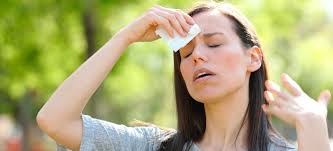
New Delhi. To keep the body healthy, it is important to drink adequate amount of water along with food. Lack of water in the body can make you a victim of many problems. Two-thirds of the body is made up of water. Dehydration is a common problem in summers. Due to increase in temperature and humidity, the body sweats more, which leads to lack of water and electrolytes in the body and causes dehydration. Do not make the mistake of considering it a minor thing, because in serious cases it can even lead to death.
Signs of dehydration
- Feeling more thirsty
- Decreased urination despite drinking water
- skin dryness
- feeling tired all the time
- Headaches and dizziness
- Dry mouth
Main causes of dehydration
not drinking the required amount of water
When a person does not drink the required amount of water throughout the day, dehydration can occur.
Excessive sweating
In summers, working or exercising outside in the sun causes excessive sweating. In such a situation, when we do not drink water, there is a lack of water in the body and this leads to dehydration.
Diabetes
Diabetes patients can also be victims of dehydration. Excessive urination can lead to dehydration.
Vomiting or diarrhea
In case of problems like vomiting or diarrhea, excessive amount of water and electrolytes are lost from the body, which can lead to dehydration.
Ways to overcome dehydration
1. After every vomiting or diarrhea, it is necessary to drink sufficient quantity of water, lemonade, coconut water. Even if you do not feel thirsty, keep drinking water in small quantities. Adults should drink at least 8 to 10 glasses of water daily.
2. In summer, one should keep drinking water every 15 to 20 minutes during any activity or sports outside.
3. Apart from water, include fruits like watermelon, cucumber, orange in the diet. These also help in keeping the body hydrated.
4. Apart from these, take oral rehydration solution (ORS), which replaces fluids and electrolytes lost during dehydration.
5. Wear loose and cotton clothes, avoid outdoor activities between 10 am to 4 pm.
(Based on conversation with Dr. Sushil Singla, Director, Pediatrics, Sarvodaya Hospital, Faridabad)
--Advertisement--

 Priya
Priya Share
Share



